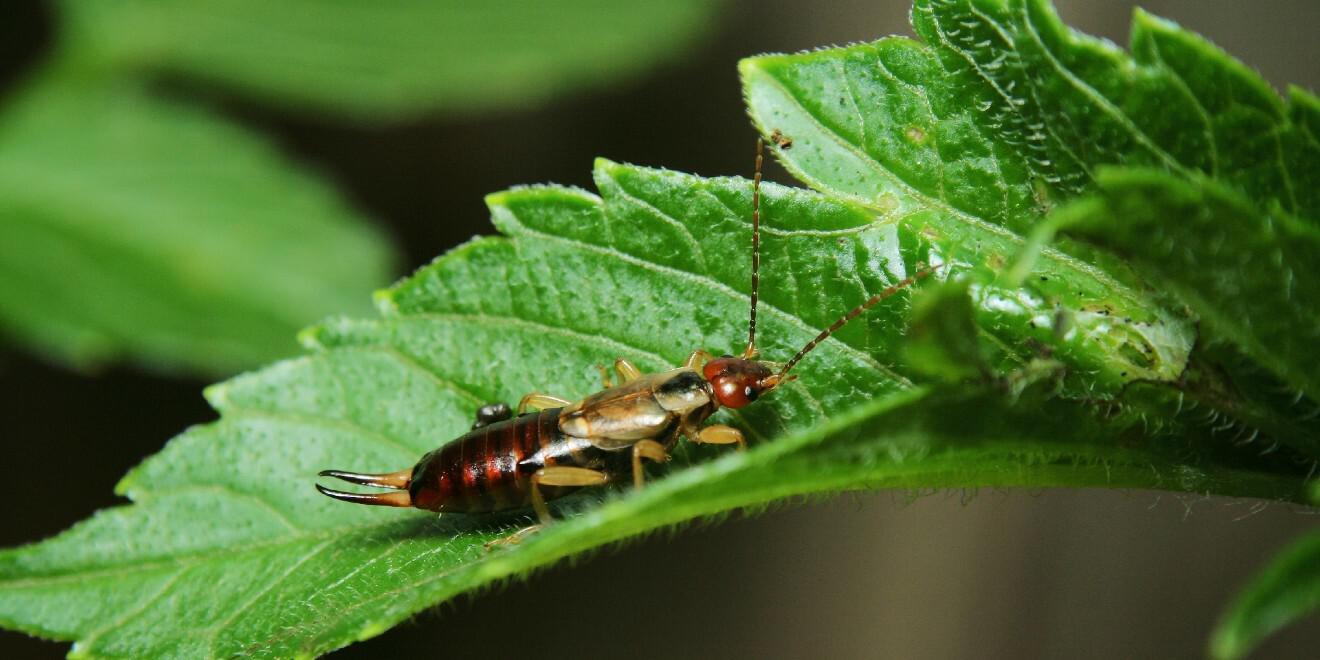How to Deter Earwigs from Your Garden
Posted by Mosquito Squad
July 2, 2024
Author: Emma Grace Crumbley, Entomologist
Earwigs, also called "pincher bugs," are insects in the order Dermaptera. Identified by the pincers on their abdomen, these bugs get their name from old wives’ tales of earwigs crawling into peoples’ ears (spoiler alert: they don’t do that). Earwigs can use those pincers to pinch people when threatened, though pinches usually don't break the skin. Though they definitely put the creepy in creepy crawlies, earwigs can also mean trouble for your plants. Don’t let earwigs chew through your garden!
Benefits of Earwigs
Believe it or not, there are some benefits to keeping earwigs around. Earwigs are carnivorous and eat tiny garden pests like aphids and scale insects. Earwigs are also detritivores that feed on decomposing organic matter like rotting wood and dead leaves. In small numbers, earwigs help restore nutrients to the soil in your garden by breaking down decaying plants. However, large numbers can also lead earwigs to feed on healthy plants.
Earwig Infestations
When populations become high, resources like food become scarce. In a large infestation, earwigs will continue to feed on decaying bugs and plant matter, but when challenged with resource competition, earwigs will also feed on nearby living plants. Flowering plants, fruiting plants, vegetables, trees, and ornamental foliage are all at risk of being eaten by earwigs. Young plants and saplings are especially susceptible to earwigs, and in large infestations, plant death can result from earwig damage.
Discouraging Earwigs
Most pest infestations happen when pests take advantage of ample food, water, and shelter. In the case of earwigs, these areas include the parts of your garden with lots of decaying material and moist substrate covered by mulch or rocks. To prevent earwigs from taking over, check your garden for rotting plants and overwatered areas. Reducing decomposing vegetation and moisture will reduce earwig foraging. Removing areas of harborage like leaf litter, wood, and mulch piles will also discourage earwigs from establishing. Finally, adding a substrate like diatomaceous earth can discourage earwigs from exploring your garden beds. Diatomaceous earth is a fine powder that dries out insects and cuts through their exoskeletons, and this product is not harmful to people, pets, or plants.
Call in the Pros!
If an earwig problem becomes too intense to tackle, take the guesswork out of pest work and call Mosquito Squad! Our highly trained technicians are equipped to identify and help solve your garden pest problems. Call today for a free quote! Services vary by location.
